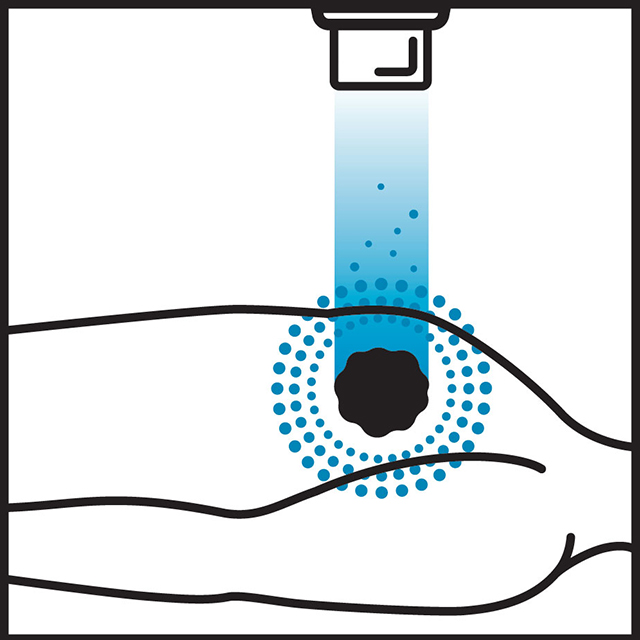Round 2 for me
Hello all, on Dec. the 12th I was to be cured as that is my 5 year aniversary post treatment for SCC.
After routine blood work my TSH had been rising since earlier in the year. After seeing the rise and time it was taking to get my reading down I decided to see a specialist at the cancer hospital where I was treated in the beginning. My endocrinologist immediately ordered an ultrasound.
The left lobe was solid with a highly concerning local node. A FNA was ordered and came back positive for Pappillary thyroid cancer. This was most likely caused by the radiation treatment I received for the SCC. I see why Russ and others called it the gift that keeps on giving.
I have a Nov 8th app. with my surgeon and will post an update. I wanted to thank many of you for the helpful hints and words that were beneficial during my treatment. I will post an update when i know more and will also post over on the Thyroid forum.
Comments
-
Hi, big G, and sorry to hear you are dealing with cancer again. And I guess the worst part is that they think it was caused by the earlier radiation that saved you. This is a well-known risk and possibility that pre-radiation can affect the thyroid. It is a risk, but I believe very few actually have this happen.
No matter big G prayers your way this can easily be mitigated and you can resume your cancer-free lifestyle. You did it before and you can do it again.
Yes please keep us updated on the situation.
Prayers your way...
Wishing You the Best
Take care, God Bless
Russ
0 -
Steven, you are right. But then again I have thought about this a number of times and I believe the majority of people just want their cancer gone, count me in on this one and we say side effects later, well people figure they will cross that bridge when they come to it.
So they tell you there is a chance of your treatments causing trouble down the road but I don't know if anyone turns down the treatment when their care team presents a plan to eradicate their cancer.
And truthfully in most cases there are not a lot of options.
We really are truly Blessed to live in a time of advanced cancer treatment as compared to not that many years ago.
My first cancer in 2012 was throat cancer. I had radiation and chemotherapy to get rid of it, big tumor had to be stage 3 or 4. My ENT told me if you would have had this 10 years earlier the best option was to do surgery to take the tumor out and do a whole larengectomy. The treatment was brutal but it kept the body intact and not being disfigured and not needing a trach, etc. This was because of the advances of radiation and chemo.
Take Care, God Bless
Russ
0 -
wbcgaruss, I really respect your contributions to this forum and especially your experiences that you share with us all. I'm lucky that Dr's reduced the rad standard by half since you were treated. I do wonder if i'd waited the extra 2 weeks for proton instead of photon was my Dr more forthright about side effects. With Surgery My lead surgeon never mentioned any side effects and it wasn't until my 2 week follow up his assistant told me what I was/wasn't feeling is my new normal and that I may have to adjust to a lot of new normals now.
I want to say I feel like I got great treatment and was as prepared as I could have been having gotten oral and lymph therapy b4, during, and after radiation to help me get through so I'm not bashing anyone any step of the way. I do wonder if the omission of talking about our 'new normal' is deliberate since just being diagnosed with cancer is enough to digest by itself.
0 -
Well, Steven thanks for the kind words.
I really think they don't really talk about side effects at all or not much is probably because patients generally say "I can handle the side effects, let's get a plan and get rid of this cancer first." I can visualize in my mind doctors at some point wanting to tell their patients what they may experience a year or more down the road and people just want to focus on getting rid of the cancer. That's where I was and I believe most people are when they are told they have cancer. Although I agree I don't remember the docs discussing the side effects post-treatment at all or very little and I think it is because they get a poor response from patients on that subject. My radiation and chemo doctors and teams did absolutely talk a lot about how difficult the treatment is in order to try to get me ready and prepare me physically as well as mentally. Well, they were right the treatment was tough and brutal and the hardest thing I ever went through in my life.
As far as Proton and Photon, you may have encountered a bit more collateral damage to good cells and it may have left you with more side effects or just plain side effects. Or maybe depending on the location of the cancer and the size it may have made no difference or very little. Either way, you made the decision and you are where you are at. You will be okay and deal with whatever you have because you are strong. I looked up the proton photon comparison and this I thought summed it up...
One key difference between X-ray or photon radiation therapy and proton therapy is already known. It goes to the very core of why proton therapy is beneficial. It’s not that it kills cancer better; it’s that it damages normal cells less. Photons pass through the cancer and out the other side, so on this exit, they hit normal cells and tissue. Proton therapy, on the other hand, stops at the tumor. There is no exit dose.
“Conventional photon radiation therapy and proton therapy cure tumors at the same rate,” explains Viswanathan. “The side effects they can cause are similar, but with proton, less dose goes to normal cells, and that’s the benefit.”
What Viswanathan describes is technically known as the Bragg peak. As protons travel through the body, most of the energy is reserved and released where the protons stop—in the tumor. Photons release energy along the entire path they travel. This fundamental difference is what makes proton therapy preferential for certain tumors. If vital organs or structures are along the path the radiation travels, protons cause less damage to them.
It can reduce excess radiation to normal cells and vital structures and organs by about 1.5 to three times, Viswanathan says. But, at two times the cost of photon radiation, clinical data to prove proton’s benefit over photon radiation is essential to moving the technology forward.
Theodore DeWeese says photons and protons both have their place in radiation therapy, and that’s why advanced knowledge of the field is so important. One area, he says, where the benefit has clearly been demonstrated is pediatric patients and tumors in the brain and spine and when the cancer is located close to vital organs, like the heart. Head and neck cancers, tumors located at the base of skull where nerves come out, breast cancers near the heart, lung cancers in the middle of chest or near the esophagus, certain pancreas and abdominal tumors—essentially any cancer located in or around complicated anatomy that needs to be shielded from radiation may be better suited for proton therapy. When combined with lumpectomy, proton therapy could potentially improve breast-conserving treatments. However, all of these benefits must be proven definitively through clinical trials, DeWeese says, adding that these studies may show cancers that can be treated just as effectively with less expensive therapies, but they will also reveal when proton is the preferable choice.
Here is a link to the full article from Johns Hopkins...
And lastly Steven you said, "I do wonder if the omission of talking about our 'new normal' is deliberate since just being diagnosed with cancer is enough to digest by itself."
I think you hit the nail right on the head with that statement, right on target.
Wishing You The Best
Take Care, God Bless
NEGU (Never Ever Give Up)
Russ
1
Discussion Boards
- All Discussion Boards
- 6 CSN Information
- 6 Welcome to CSN
- 122K Cancer specific
- 2.8K Anal Cancer
- 446 Bladder Cancer
- 309 Bone Cancers
- 1.6K Brain Cancer
- 28.5K Breast Cancer
- 398 Childhood Cancers
- 27.9K Colorectal Cancer
- 4.6K Esophageal Cancer
- 1.2K Gynecological Cancers (other than ovarian and uterine)
- 13K Head and Neck Cancer
- 6.4K Kidney Cancer
- 673 Leukemia
- 794 Liver Cancer
- 4.1K Lung Cancer
- 5.1K Lymphoma (Hodgkin and Non-Hodgkin)
- 239 Multiple Myeloma
- 7.2K Ovarian Cancer
- 65 Pancreatic Cancer
- 487 Peritoneal Cancer
- 5.5K Prostate Cancer
- 1.2K Rare and Other Cancers
- 543 Sarcoma
- 737 Skin Cancer
- 657 Stomach Cancer
- 192 Testicular Cancer
- 1.5K Thyroid Cancer
- 5.9K Uterine/Endometrial Cancer
- 6.3K Lifestyle Discussion Boards


